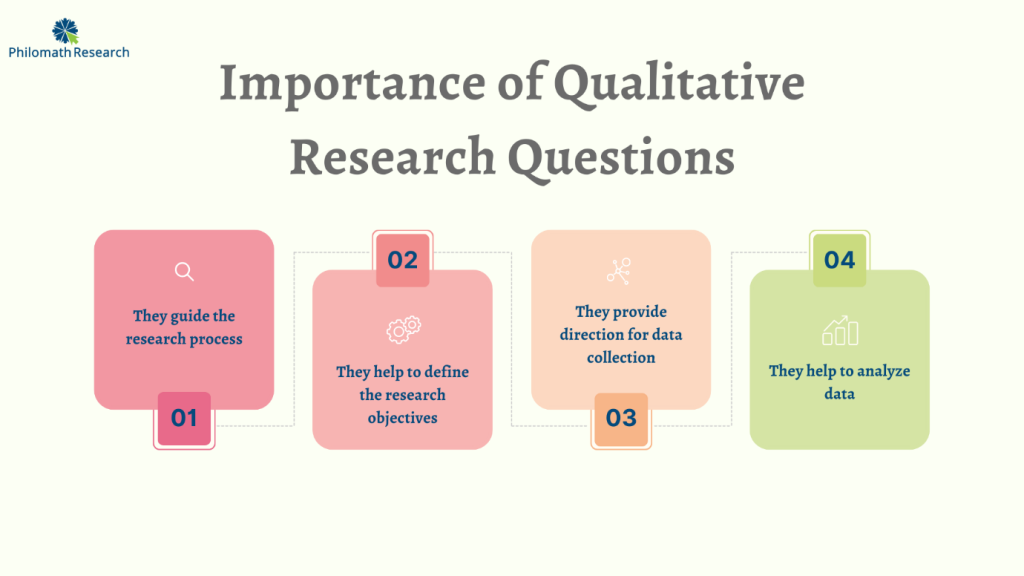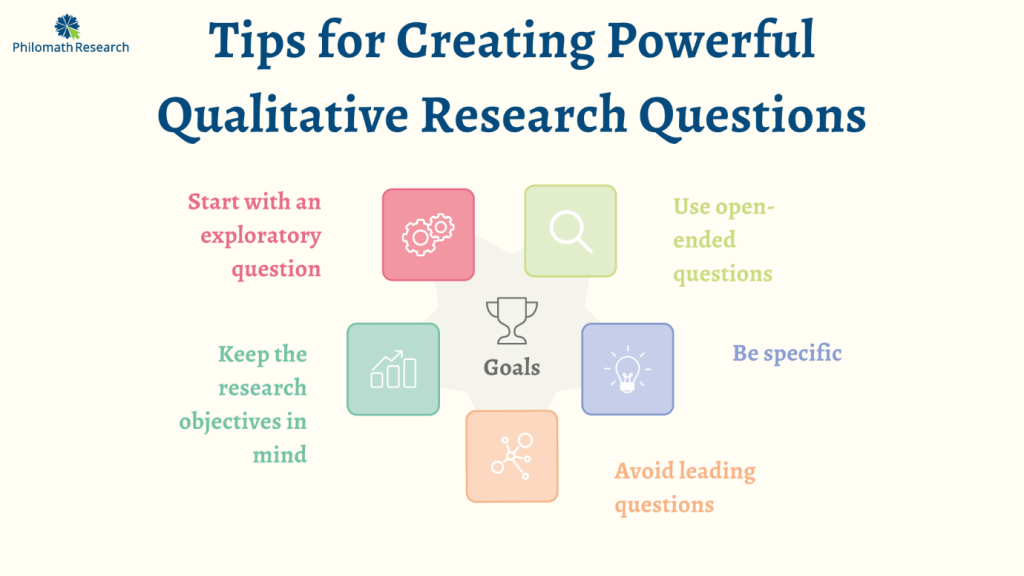
Qualitative Research Questions: Gain Powerful Insights
Qualitative research is a method of inquiry that aims to gain an in-depth understanding of human behavior and the underlying reasons that motivate it. Qualitative research involves collecting and analyzing non-numerical data, such as interviews, focus groups, observations, and textual data.
Qualitative research questions are the foundation of a qualitative research study. They guide the research process and help to frame the research objectives. In this blog post, we will discuss the importance of qualitative research questions and provide tips for creating powerful research questions that can lead to valuable insights.
Importance of Qualitative Research Questions

Qualitative research questions are important for several reasons:
1. They guide the research process: Qualitative research questions provide a roadmap for the research process. They help the researcher to focus on the most relevant aspects of the research topic and ensure that the study is conducted in a structured and organized way.
2. They help to define the research objectives: Qualitative research questions help to define the research objectives by identifying the specific research questions that need to be answered. This ensures that the study is focused on the most important aspects of the research topic.
3. They provide direction for data collection: Qualitative research questions guide the collection of data by identifying the types of data that need to be collected and the methods that should be used to collect them.
4. They help to analyze data: Qualitative research questions help to analyze data by providing a framework for interpreting the data collected. This ensures that the data is analyzed in a structured and organized way.
Tips for Creating Powerful Qualitative Research Questions
Creating powerful qualitative research questions is an essential step in conducting a successful qualitative research study. Here are some tips to help you create powerful research questions that can lead to valuable insights:
1. Start with an exploratory question: Begin by asking an exploratory question that allows the researcher to gain a broad understanding of the research topic. This question should be open-ended and non-judgmental, allowing participants to share their experiences and perspectives freely.
2. Keep the research objectives in mind: The research objectives should guide the creation of the research questions. Ensure that the questions are relevant to the research objectives and will provide valuable insights.
3. Use open-ended questions: Open-ended questions are essential in qualitative research because they allow participants to express their thoughts and feelings in their own words. Avoid closed-ended questions that limit participants’ responses.
4. Be specific: Qualitative research questions should be specific and focused on the research topic. Avoid asking broad or vague questions that are difficult to answer.
5. Avoid leading questions: Leading questions can bias participants’ responses and lead to inaccurate data. Ensure that the questions are neutral and do not suggest a particular answer.

Examples of Qualitative Research Questions
Here are some examples of qualitative research questions:
1. What are the experiences of new mothers during the first six months of motherhood?
2. How do teachers feel about the use of technology in the classroom?
3. What are the experiences of LGBTQ+ individuals in accessing healthcare services?
4. What are the factors that influence employee engagement in the workplace?
5. How do consumers make purchasing decisions for luxury goods?
Conclusion
Qualitative research questions are essential in conducting a successful qualitative research study. They guide the research process, define the research objectives, provide direction for data collection, and help to analyze data. Creating powerful research questions requires careful consideration of the research topic, research objectives, and the participants involved. By following the tips provided in this blog post, researchers can create powerful research questions that can lead to valuable insights. www.philomathresearch.com